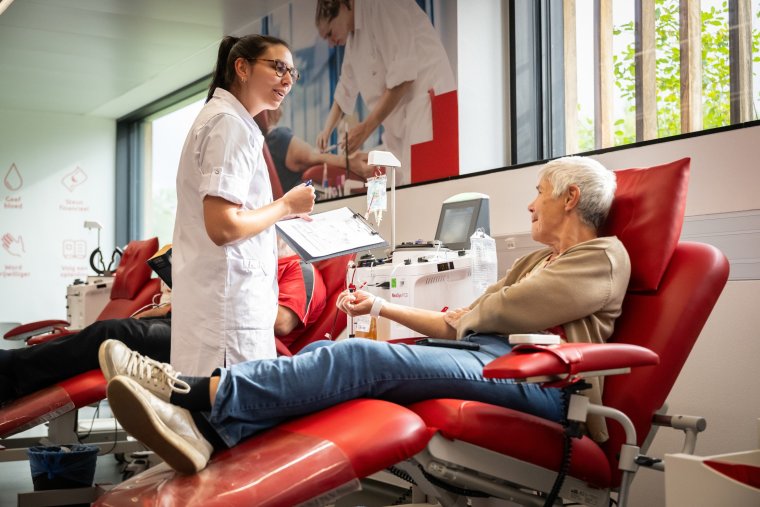Plasma donation has no negative effect on athletic performance

Sport and plasma donation go together perfectly. This is evident from a large-scale study by Belgian Red Cross-Flanders among sportspersons, in collaboration with the Université catholique de Louvain (UCLouvain). "There was ambiguity about the impact of plasma donations on athletic performance, and no studies that could provide an unequivocal answer. To settle the discussion, we set up an in-depth study, and it now shows that plasma donation has no negative effect on athletic performance. That is quite important information for all our sports donors," said Chief executive officer, CEO of Belgian Red Cross-Flanders, Professor Philippe Vandekerckhove.
The study by Rode-Kruis-Vlaanderen and UCLouvain was just crowned best scientific publication by the renowned international journal Vox Sanguinis. It is the first study worldwide to examine the influence of plasma donation on athletic performance so comprehensively. Professor Vandekerckhove may soon receive the award in Milan.
Giving plasma without performance degradation
A total of 63 athletic individuals participated in the study. They were classified according to donation frequency: from once a month to twice a week as well as a control group. Over a period of three months, the researchers examined numerous parameters, including blood values, muscle strength, body composition and performed a "maximum effort test" on a bicycle.
|
In Belgium, there is a legal limit of 26 donations per year, or one donation every two weeks. Belgian Red Cross-Flanders is not in favor of more frequent donations. This study shows that much more frequent donations as happens in the United States (104), Germany (60) or Hungary (45) may not have a negative impact on sports performance. But, this and previous research shows that excessive donation up to 8 times a month does have a negative effect on antibody levels in the blood. In comparison, the legal limit in Belgium is about 2 donations per month. A plasma donor in Flanders donates on average 4-5 times a year. |
The conclusion is clear:
- Giving plasma once a month has no impact on athletic performance or physical fitness.
- Even at higher frequencies (3 times per month), the performance level remained stable.
- Excessively frequent donations (up to 8 times a month, which is 4 times-more than the limit in Belgium) do show a decrease in antibody levels in the blood.
Proponent of Belgian donor limits
"The results show that even intensive plasma donation is safe, but once you exceed the legal thresholds that are scientifically established with us, biological effects can occur over time. Therefore, we strongly support a precautionary policy that helps the patient receiving plasma and protects the donor." says Professor Vandekerckhove.
Scientific recognition
The results of the study were published in Vox Sanguinis, the leading journal in transfusion medicine. The journal's editors named the study the best article of the year. The award will be officially presented at the International Congress of the International Society of Blood Transfusion (ISBT) on May 31 in Milan.
Athletes welcome as donors
"The results of the clinical study conducted by our team of scientists at UCLouvain have dispelled all doubts about plasma donation: giving plasma up to 3 times a month does not affect donors' sports performance. This is excellent news for encouraging plasma donation, which is essential for saving lives!", Louise Deldicque, professor at the Faculty of Exercise Sciences at UCLouvain.
"This study confirms what we already suspected: donating plasma is safe, even for people who exercise frequently and intensively," Vandekerckhove said. "We hope these results dispel doubts and encourage athletic people to become donors. Plasma saves lives."
More info or become a donor yourself? Surf to www.rodekruis.be/plasma
